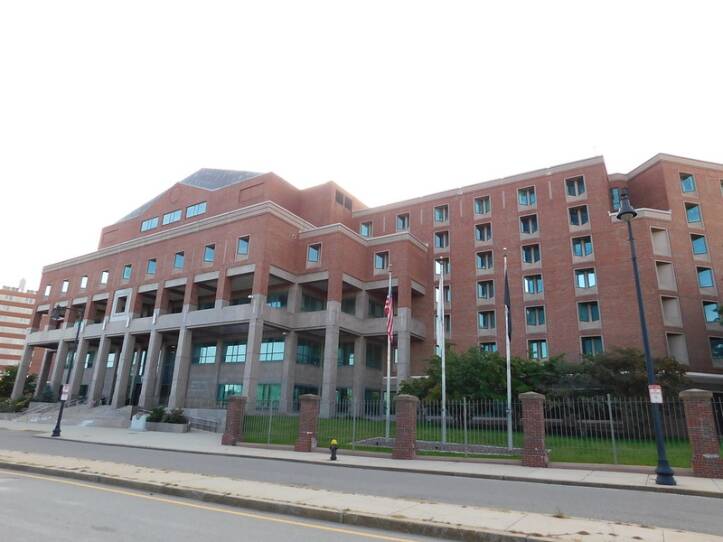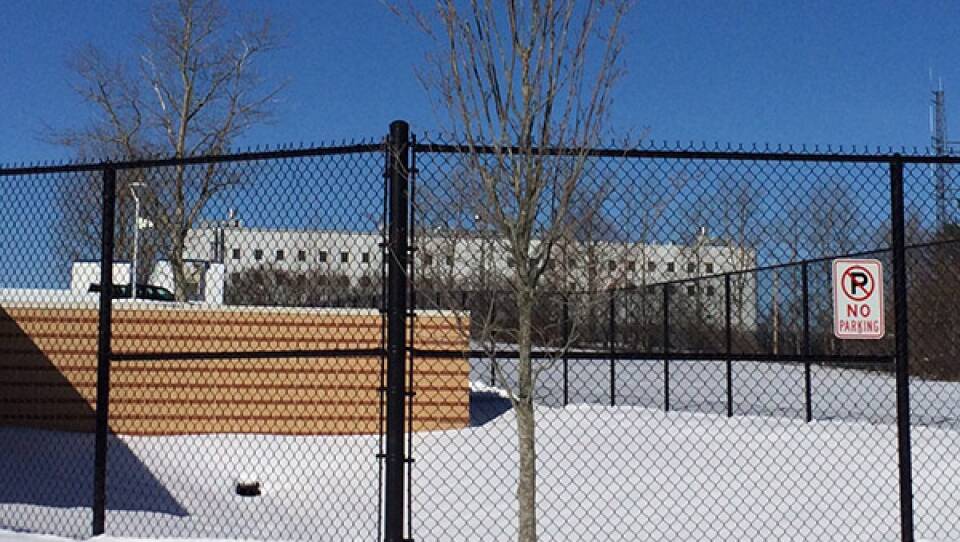The Essex County Sheriff’s Office on Monday lowered the age requirement for correctional officers from 21 to 19 years old.
Essex County Sheriff Kevin Coppinger said it’s been a struggle to maintain staffing levels at the second-largest jail in Massachusetts, in part because of increasing anti–law enforcement sentiments. The county previously added a $2,500 hiring bonus to attract workers. Now, Coppinger is hoping the lower age requirement — combined with the state's tuition remission program — will appeal to more applicants.
Essex is not the only Massachusetts county to employ 19-year-old correctional officers. Still, some people criticized the decision.
“Some people will argue they might not be mature enough, but we're going to do extensive background checks to all our board interviews, we have our own academy so we can make sure we're training them properly,” Coppinger said.
“There's some immature 19-year-olds out there, but I run into immature 20-year-olds, 30-year-olds, 40-year-olds, all the way up the gamut,” he added. “So it's a look at the individual, not just the particular group, and let the individual make their case to convince us that we should take a chance on them and they take a chance on us.”
Coppinger added that the sheriff’s office has employed 19-year-olds in the past, and other counties also hire with a lower age requirement.
Other counties in Massachusetts with a minimum hiring age of 19 for their correctional officers include Berkshire, Bristol, Dukes, Franklin and Hampshire counties, according to their position listings. The minimum age in Bristol County has been 19 since at least 1998, a spokesperson for the office said.
In addition to concerns of maturity, some critics urge officials to look at further reforms. Liz Matos, the executive director of the Prisoners' Legal Services of Massachusetts, said instead of figuring out ways to attract more correctional officers, the state should implement reforms to decrease the overall number of people incarcerated.
“Some states and counties allow 19-year-olds to work as corrections officers,” Matos said in an email statement. “However, instead of lowering the age for hiring, steps like eliminating cash bail could be taken to reduce the need for additional hiring.”
About 65% of Essex County’s incarcerated people were being held in pre-trial detention, according to January’s state data.

Some Massachusetts county sheriff offices still require a 21-year-old minimum to be a correctional officer, including Barnstable, Middlesex, Norfolk and Suffolk counties.
Hampden County has allowed younger candidates into the training academy, but it is rare, a spokesperson for the sheriff’s office said in an email statement.
“While the Hampden County Sheriff's Office has always required correctional officers to be at least 21 years of age, in very rare instances, we have allowed someone younger than 21 to enter one of our correctional officer academies,” the statement said. “That has only happened as long as the recruit was at least 19 years of age, in accordance with Commonwealth of Massachusetts regulations.”
The state Department of Corrections also requires candidates to be 21 years of age to be appointed as a correctional officer, but the entrance exam can be taken at 19, according to state law.
Coppinger recognizes that even with the lowered age limit, the job won’t appeal to everyone. One of his sons, for example, appreciates the ability to work remotely for his job. That’s not an option for correctional officers.
But for those who are looking for a “starting place to get in law enforcement,” Coppinger thinks the job might align well with what many young adults are looking for.
“It can be rewarding. It can be frustrating. I'm not going to sugarcoat it,” he said. “But $68,000 annual salary starting in, all the overtime you want, the tuition program, it's got nice benefits working for the state of Massachusetts. It's just what people want.”








